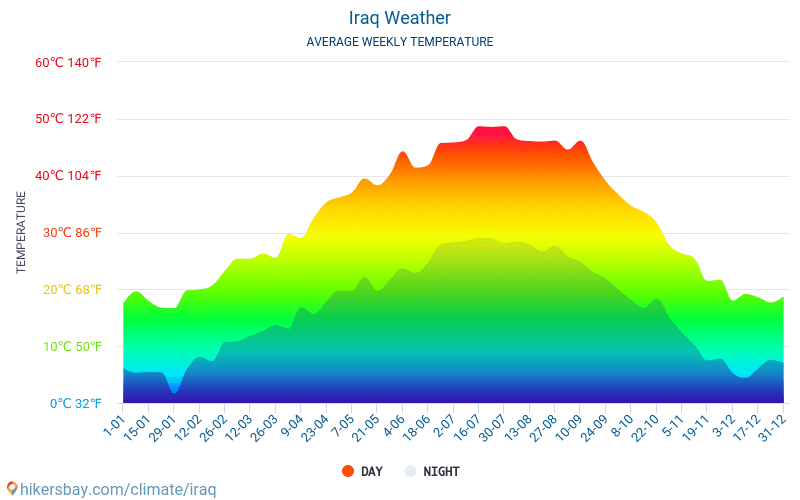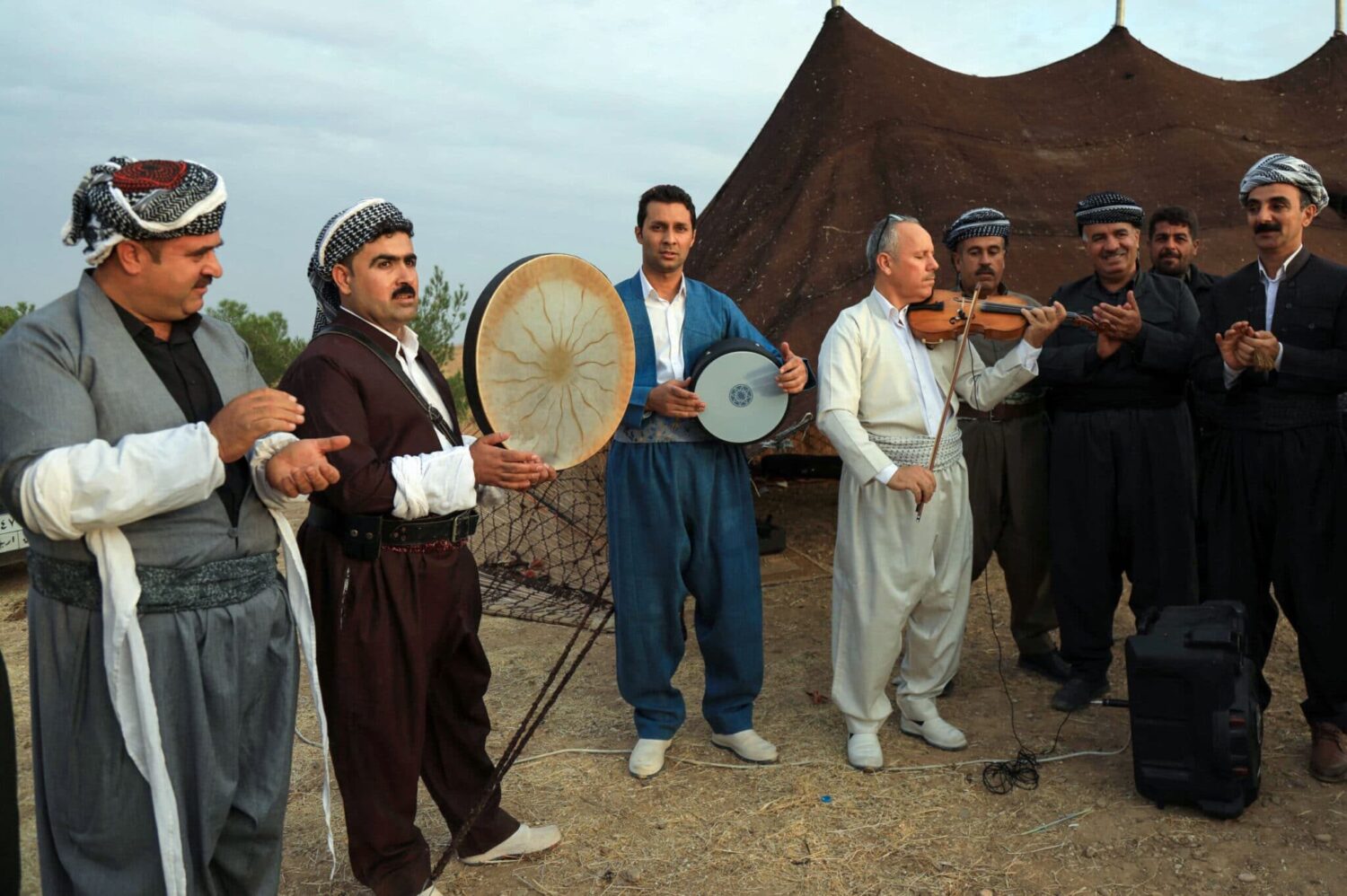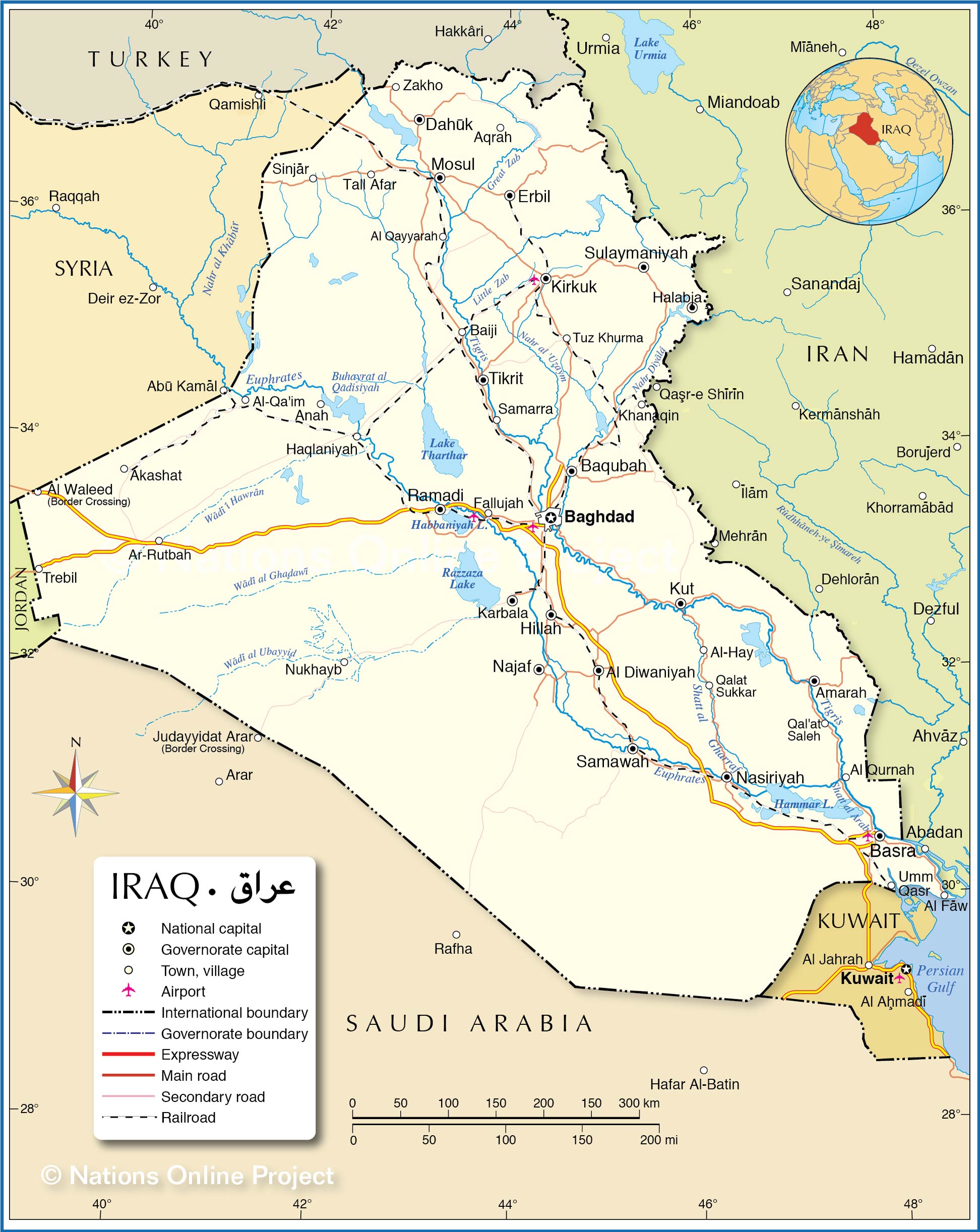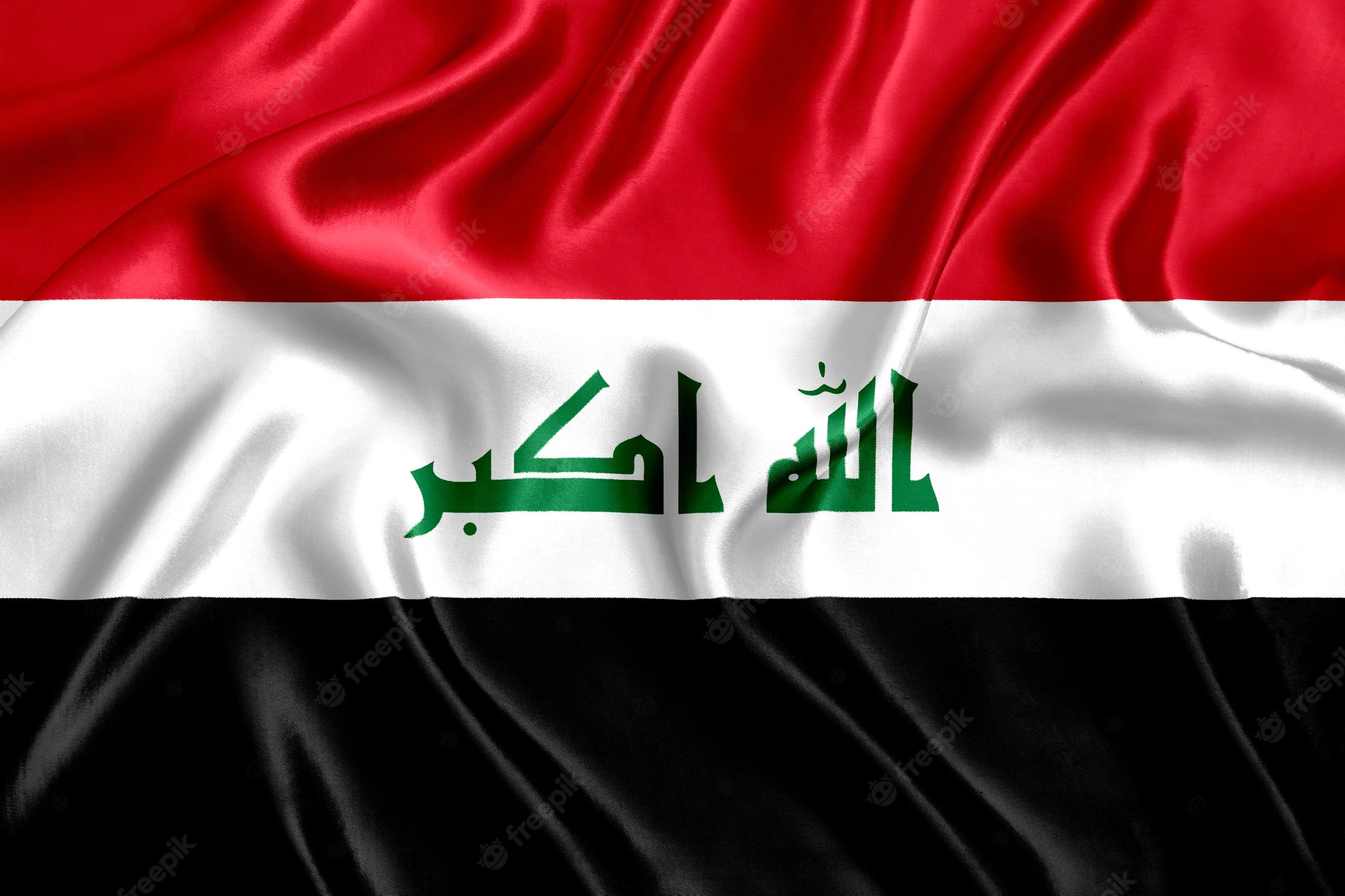Iraq, officially the Republic of Iraq is a country in Western Asia. It is bordered by Turkey to the north, Iran to the east, the Persian Gulf and Kuwait to the southeast, Saudi Arabia to the south, Jordan to the southwest and Syria to the west. Iraq is home to diverse ethnic groups including Iraqi: Arabs, Kurds, Turkmens, Assyrians, Armenians, Yazidis, Mandaeans, Persians and Shabakis with similarly diverse geography and wildlife. The vast majority of the country's 44 million residents are Muslims – the notable other faiths are Christianity, Yazidism, Mandaeism, Yarsanism and Zoroastrianism. The official languages of Iraq are Arabic and Kurdish; others also recognised in specific regions are Neo-Aramaic, Turkish and Armenian.
- FORM OF GOVERNMENT: Parliamentary democracy
- CAPITAL: Baghdad
- POPULATION: 40,194,216
- OFFICIAL LANGUAGES: Arabic, Kurdish
- MONEY: New Iraq dinar
- AREA: 168,754 square miles (437,072 square kilometers)
Currency
The Iraqi dinar is the currency of Iraq. It is issued by the Central Bank of Iraq and is subdivided into 1,000 fils, although inflation has rendered the fils obsolete since 1990. On 19 June 2022, the exchange rate between the US Dollar was US$1 = 1462.5 dinars.
Climate
Iraq has two climatic provinces: the hot, arid lowlands, including the alluvial plains and the deserts; and the damper northeast, where the higher elevation produces cooler temperatures. In the northeast cultivation fed by precipitation is possible, but elsewhere irrigation is essential.
In the lowlands there are two seasons, summer and winter, with short transitional periods between them. Summer, which lasts from May to October, is characterized by clear skies, extremely high temperatures, and low relative humidity; no precipitation occurs from June through September. In Baghdad, July and August mean daily temperatures are about 95 °F (35 °C), and summer temperatures of 123 °F (51 °C) have been recorded. The diurnal temperatures range in summer is considerable.
In winter the paths of westerly atmospheric depressions crossing the Middle East shift southward, bringing rain to southern Iraq. Annual totals vary considerably from year to year, but mean annual precipitation in the lowlands ranges from about 4 to 7 inches (100 to 180 mm); nearly all of this occurs between November and April.

Economy
The World Bank’s new Iraq Economic Monitor, titled “Harnessing the oil windfall for sustainable growth”, finds that Iraq’s economy is gradually emerging from the deep recession caused by the pandemic and the plunge in oil prices in 2020. After contracting by more than 11 percent in 2020, the economy grew by 2.8 percent in 2021 supported by the solid expansion of non-oil output, in particular services, as COVID-19 movement restrictions were eased. Oil GDP also started growing in the second half of 2021 as OPEC+ production cuts started to be phased out. Higher oil revenues pushed Iraq’s overall fiscal and external balances into a surplus in 2021, however, fiscal rigidities and high level of unaccounted arrears remain.
Iraq’s existing food security challenges have intensified with the recent surge in global commodity prices, while domestic food production fell short of demand from the country’s rapidly growing population. While subsidies and direct transfers can help mitigate impact in the short run, achieving food security calls for coordinated efforts to improve domestic food production and a more efficient management of existing water resources.
The Special Focus chapter of the report discusses how the pandemic worsened Iraq’s existing human capital crisis and led to substantial learning losses in Iraq. As a result of the school closures, the World Bank estimates that the learning-adjusted years of schooling (LAYS) decreased to between 2.6 and 3.0—a decline of 1.0 to 1.4 years of learning. This would translate into lifetime earnings for the affected students to be reduced by between 8.4 and 11.2 percent and economywide losses equivalent to more than one-third of Iraq’s total GDP in 2020. Addressing these challenges calls for an education reform path for better learning and skills development to improve human capital outcomes.
Looking ahead, the turnaround in oil markets has improved Iraq’s economic outlook in the medium term. The economy is projected to grow in 2022-24 by 5.4 percent on average per year in 2022-24 as oil production increases in line with production capacity and higher investments finance by the oil windfall drives non-oil GDP growth. In the absence of structural reforms, the llimited absorptive capacity of the economy remains a binding constraint on Iraq’s growth potential and macroeconomic stability.
Education
Iraq Education
Iraqi Education is strictly controlled by the national Iraqi government, through the Iraqi Ministry of Education. This public state education is provided free, from Primary School, all the way to Doctoral degrees. Private education institutes exist; however, the contrasted expense of these schools make them unattractive to most Iraqi citizens. The main attraction to them is their freedom, or lack of control by the Iraqi government, allowing students to decide which study and career path they would like, based on individual preference.
Iraqi education is known to be of extremely high caliber throughout the Middle East, taught in both Arabic and English. Iraqi graduates have an advanced knowledge of complex subjects such as chemistry, math (algebra, calculus), biology and other scientific fields of study.
The official educational cycle in Iraq extends to 12 years, including 6 years of mandatory primary education, which starts from the age of six years, followed by 3 years of intermediate school, then 3 years of secondary education, which is divided into general secondary of scientific and literary and secondary vocational industrial, agricultural or commercial.
Students who finish high school and get the minimum qualifications for post-graduation study join universities or technical institutes, which extend study for four years at a minimum. The students of teachers institute as well as students of secondary vocational types who get excellent grades in the final examinations can join colleges and universities to pursue higher education.

Culture
The Culture of Iraq or The Culture of Mesopotamia is one of the world's oldest cultural histories and is considered one of the most influential cultures in the world. The region between the Tigris and Euphrates rivers, historically known as Mesopotamia, is often referred to as the Cradle of civilisation.

Health
Iraq had developed a centralized free and universal healthcare system in the 1970s using a hospital based, capital-intensive model of curative care.

Safety
Though traveling to areas like Basra, Najaf, Karbala, and the majority of Kurdistan is safe, and the north-east provinces which comprise Iraqi Kurdistan can be considered somewhat safe, you should still travel to this country only in cases of absolute necessity.
Cuisine
Iraqi cuisine or Mesopotamian cuisine is a Middle Eastern cuisine that has its origins from Sumerians, Akkadians, Babylonians, Assyrians and the other groups of the region. Tablets found in ancient ruins in Iraq show recipes prepared in the temples during religious festivals—the first cookbooks in the world. Ancient Mesopotamia was home to a sophisticated and highly advanced civilization, in all fields of knowledge, including the culinary arts.















